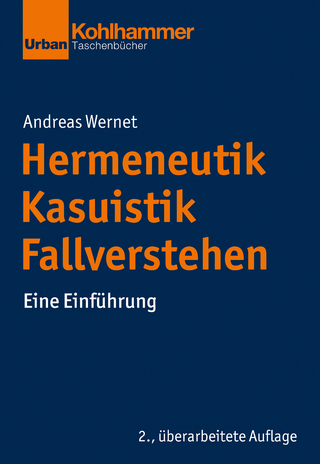
Handbook of Research on Waldorf Education
Seiten
2023
Routledge (Verlag)
978-1-032-03470-6 (ISBN)
Routledge (Verlag)
978-1-032-03470-6 (ISBN)
This publication sets out to bring clarity to this debate: renowned researchers explain and discuss Waldorf Education’s foundations in relation to the current discourse on education and core disciplines such as theory of knowledge, anthropology, developmental psychology, learning theory, and the theory of professions.
Waldorf Education: An all-round, balanced approach to education that is equally concerned with intellectual-cognitive and artistic-creative learning. A practice- and experience-based pedagogy. Non-selective and open to all children and young people; offering a stress-free, secure learning environment across 12 grades; embedded in a community of students, teachers, and parents. An alternative education that has been successfully practiced for over a century.
The first Waldorf School was founded in Stuttgart, Germany, in 1919. Today, Waldorf Education is practiced in all countries and cultures around the world: in over 1,000 schools, more than 2,000 kindergartens, and numerous centers for special needs education. This makes Waldorf Education the most prevalent alternative approach to teaching. And yet, despite the success and (now empirically validated) recognition that Waldorf schools enjoy, the theory underlying them remains controversial. Within the academic debate, Waldorf Education is seen as ideologic and unscientific.
This publication sets out to bring clarity to this debate: Renowned researchers explain and discuss Waldorf Education’s foundations in relation to the current discourse on education and core disciplines such as theory of knowledge, anthropology, developmental psychology, learning theory, and the theory of professions. This scientific inquiry into Waldorf Education is breaking new ground, casting light on its fascinating humanistic ideal and holistic potential.
Waldorf Education: An all-round, balanced approach to education that is equally concerned with intellectual-cognitive and artistic-creative learning. A practice- and experience-based pedagogy. Non-selective and open to all children and young people; offering a stress-free, secure learning environment across 12 grades; embedded in a community of students, teachers, and parents. An alternative education that has been successfully practiced for over a century.
The first Waldorf School was founded in Stuttgart, Germany, in 1919. Today, Waldorf Education is practiced in all countries and cultures around the world: in over 1,000 schools, more than 2,000 kindergartens, and numerous centers for special needs education. This makes Waldorf Education the most prevalent alternative approach to teaching. And yet, despite the success and (now empirically validated) recognition that Waldorf schools enjoy, the theory underlying them remains controversial. Within the academic debate, Waldorf Education is seen as ideologic and unscientific.
This publication sets out to bring clarity to this debate: Renowned researchers explain and discuss Waldorf Education’s foundations in relation to the current discourse on education and core disciplines such as theory of knowledge, anthropology, developmental psychology, learning theory, and the theory of professions. This scientific inquiry into Waldorf Education is breaking new ground, casting light on its fascinating humanistic ideal and holistic potential.
Jost Schieren is the Dean and Director of the Institute for School Pedagogy and Teacher Training, Department of Education, Head of the Master of Arts in Pedagogy with a focus on Waldorf Pedagogy/School and Teaching, and Head of the Graduate School in Waldorf Pedagogy, at Alanus University, Germany.
Introduction Chapter 1: Epistemology Chapter 2: Anthropology Chapter 3: Developmental Psychology Chapter 4: Learning Theory Chapter 5: The Art of Teaching Chapter 6: Theory of Professions Chapter 7: Education Science and Waldorf Education/Education Reform Chapter 8: Waldorf Education and Anthroposophy Chapter 9: Individual Topics Epilogue Contributors
| Erscheinungsdatum | 06.08.2022 |
|---|---|
| Zusatzinfo | 25 Halftones, black and white; 25 Illustrations, black and white |
| Verlagsort | London |
| Sprache | englisch |
| Maße | 178 x 254 mm |
| Gewicht | 453 g |
| Themenwelt | Sozialwissenschaften ► Pädagogik ► Allgemeines / Lexika |
| Sozialwissenschaften ► Pädagogik ► Bildungstheorie | |
| Sozialwissenschaften ► Pädagogik ► Schulpädagogik / Grundschule | |
| Sozialwissenschaften ► Pädagogik ► Vorschulpädagogik | |
| ISBN-10 | 1-032-03470-X / 103203470X |
| ISBN-13 | 978-1-032-03470-6 / 9781032034706 |
| Zustand | Neuware |
| Informationen gemäß Produktsicherheitsverordnung (GPSR) | |
| Haben Sie eine Frage zum Produkt? |
Mehr entdecken
aus dem Bereich
aus dem Bereich
Einführung in die Theorie transformatorischer Bildungsprozesse
Buch | Softcover (2023)
Kohlhammer (Verlag)
34,00 €
Eine Einführung
Buch | Softcover (2023)
Kohlhammer (Verlag)
36,00 €


